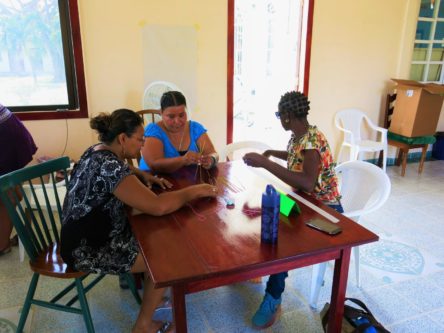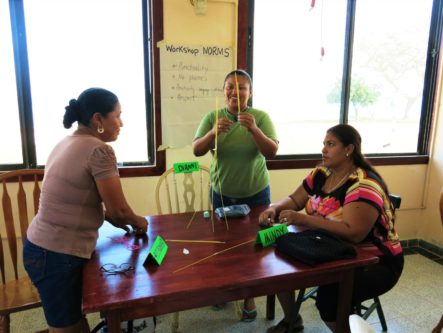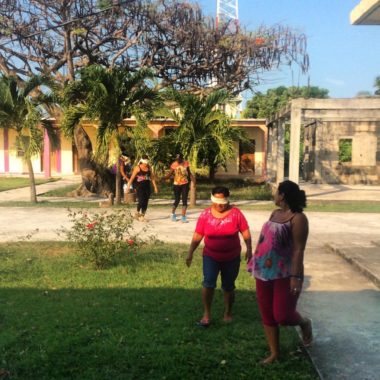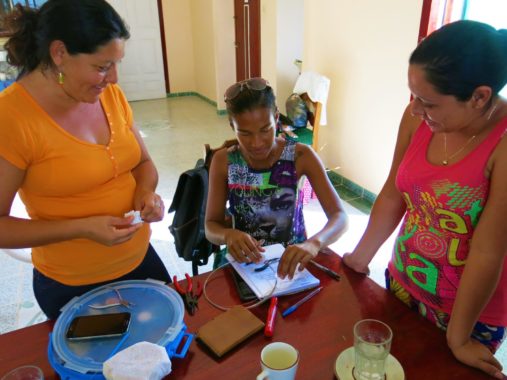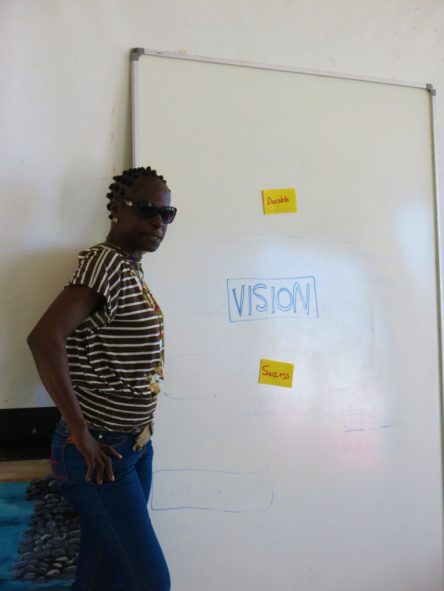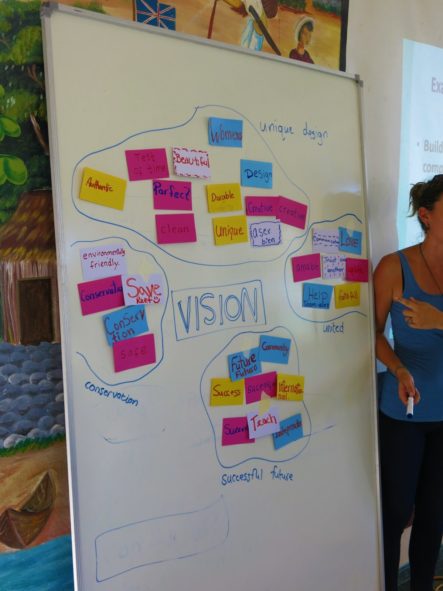Her fellow team members anxiously watch as Leonela gingerly places a marshmallow on top of their spaghetti structure. With just 2 minutes left, everyone is nervously casting quick looks around the room to check on the progress of the other teams.
The atmosphere is tense, stakes are high.
Two tables over, the normally timid Clara from Copperbank village suggests, with a fire in her eyes, that they should reinforce the base of their structure. This adjustment later ensures that their 35cm creation is triumphant.
We find ourselves in the midst of the Spaghetti challenge; a renowned team-building activity, more interactive and challenging than the human knot or the trust fall. The task for each team is to build the tallest freestanding structure using only raw spaghetti, masking tape and string, and a marshmallow has to be able to balance on top. Beyond being stimulating and competitive, this challenge also enables individuals to discover the personal strengths that they can contribute to their group.
This challenge was part of a three day workshop for Belioness, a group of Belizean women who produce lionfish jewelry together.
As their support organisation, we facilitated this workshop for several purposes; to help develop the group’s official documents, to review their progress, to improve their branding, and as a means to build deeper bonds of friendship and trust within the group.
We decided to place a particular emphasis on team-building activities to help the group weather potential conflict and miscommunications in the future.
Since the initial workshop, held in August of last year, this is the first time that all the group members have come together from across the country. These gatherings are quite a feat, with some members travelling 11 hours by bus to get there, and with four different languages being used within the group; Kriol, Spanish, Kek’chi and English.
After the spaghetti challenge we reflected on how it mirrors the wider context of what these women are doing. Working together towards an improved future for themselves, their families and their communities. Building a strong foundation for social, emotional and economic well-being, in the same manner as they built their spaghetti towers. Spindly and unstable at first, but quickly reinforced through clear communication, effective teamwork, and the utilization of everyone’s collective brain power.
With all members of Belioness coming from fishing communities, their production of lionfish jewelry serves as a multi-pronged solution to complex socio-ecological problems.
It incentivizes lionfish removals by adding value to a fishers’ landed lionfish catch. Normally value would only be attributed to the edible fillet, but now Belize has a market for lionfish fins, tails & spines as well. An increased removal of lionfish will help protect the biodiversity of the reef.
The creation of lionfish jewelry also diversifies the household incomes of the women involved and, most importantly, it is empowering each of them as independent social entrepreneurs. By earning an independent income, they are simultaneously supporting their families and reducing their dependency on husbands or fathers.
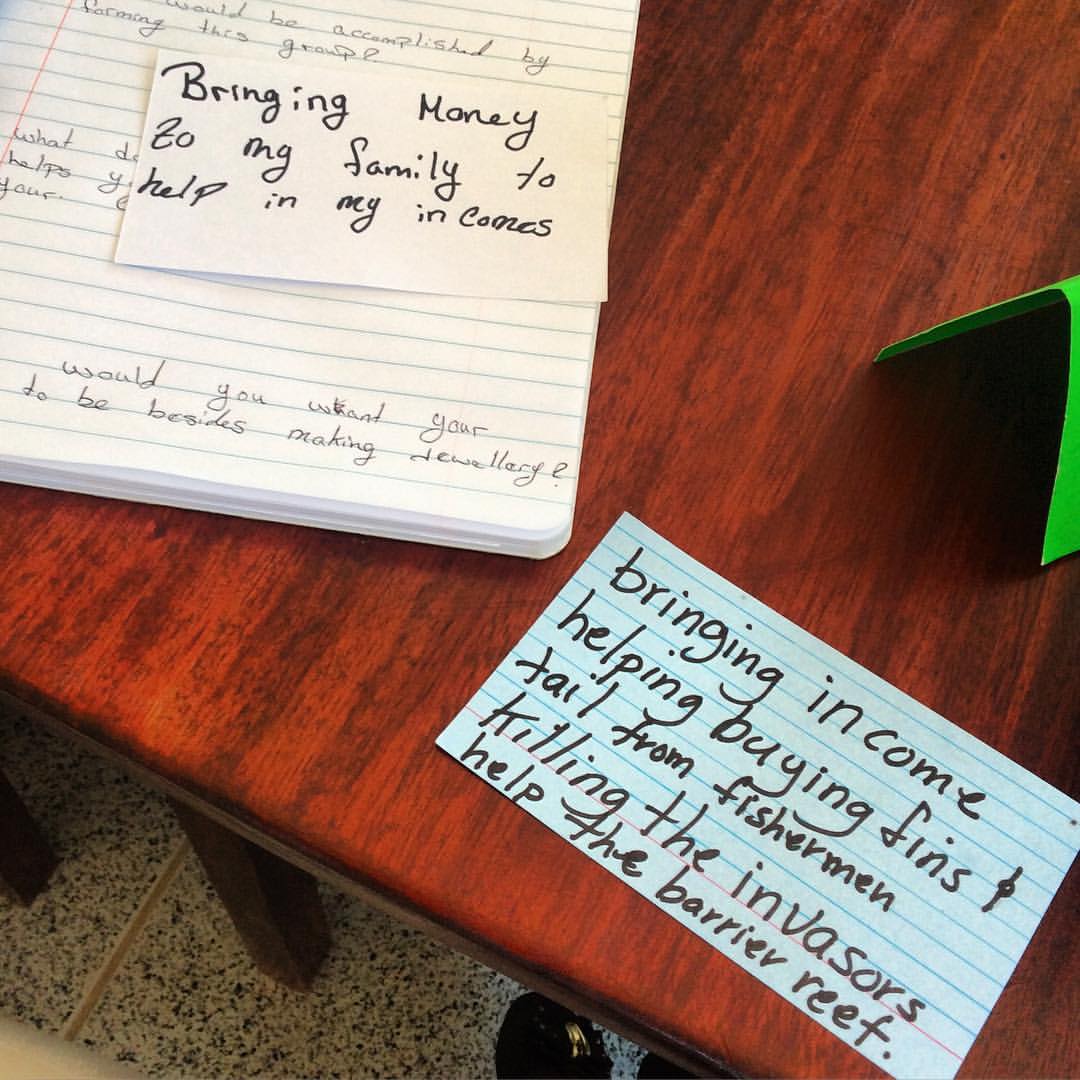
Everyone was asked to write down their goals for themselves and the group, and then present them in front of everybody
Just like with the spaghetti challenge, strategic planning and thought is vital to the success of this group of women as they move forward. Charging ahead, trying to identify and connect with sales outlets for their jewelry might generate some sales, but will leave the group without a clear vision of what they want to accomplish, how they will get there and how they will measure and evaluate success.
The Belioness Vision:
United women, empowered communities, and a healthy, beautiful reef.
The Belioness Mission:
To create a better future for ourselves, our country and our reef through making and selling unique handmade lionfish jewelry.
It has been incredibly inspiring to see Belioness morph from a conceptual idea to an active reality in less than nine months, and it is a credit to their collective strength and their indefatigable passion and drive.
We spent a wonderful couple of days learning and growing together in the beautiful fishing village of Sarteneja, and although everybody would have loved to stay longer, on the Monday it was time to return home.
Everyone has responsibilities in their respective villages; taking care of their children, making and selling frozen juice, paying overdue bills, but all the women will also be finding the time to make more lionfish jewelry, and we can all dream of the day when Belioness is a profitable and self-sufficient social enterprise.
Thank you to all those partners and individuals who made this workshop possible!
This workshop was organised by the Sarteneja Fishermen Association, with the support of the Protected Areas Conservation Trust and in partnership with Blue Ventures. The consultant facilitating the development of the Memorandum and Articles of Association was Osmany Salas (President of the Belize Tourism Industry Association, board member of Corozal Sustainable Future Initiative, amongst many other accolades).


